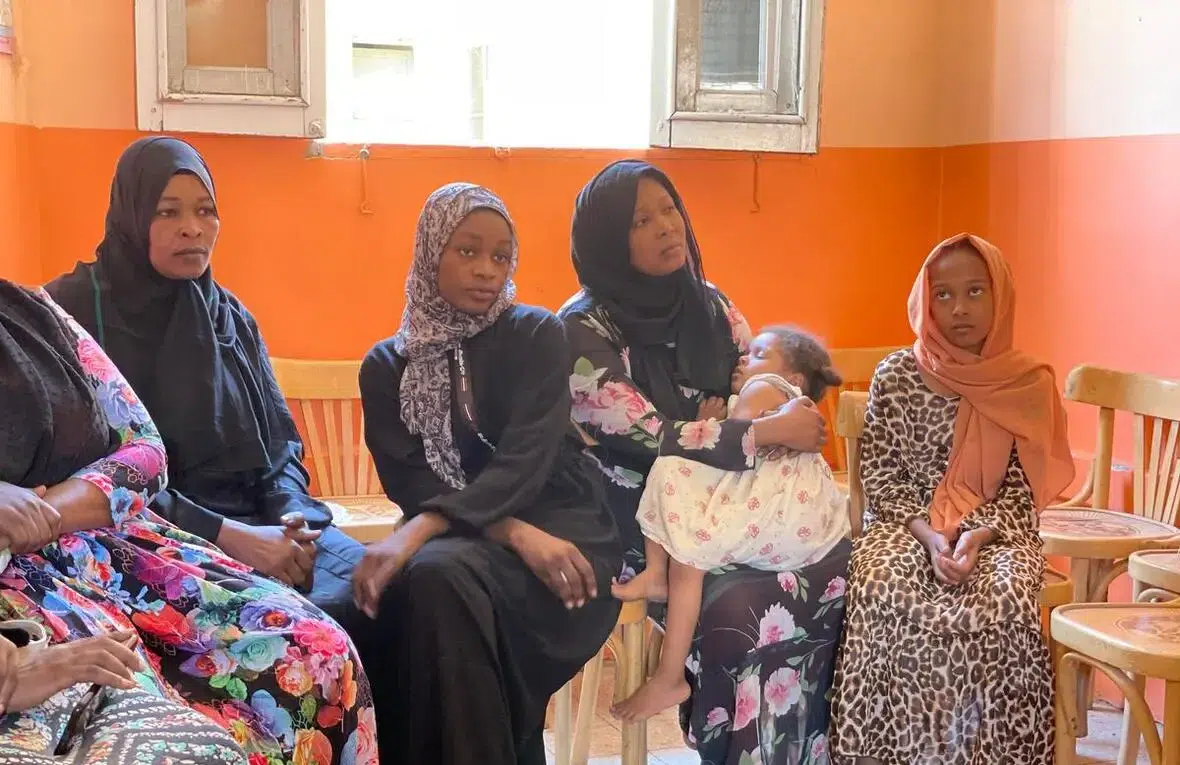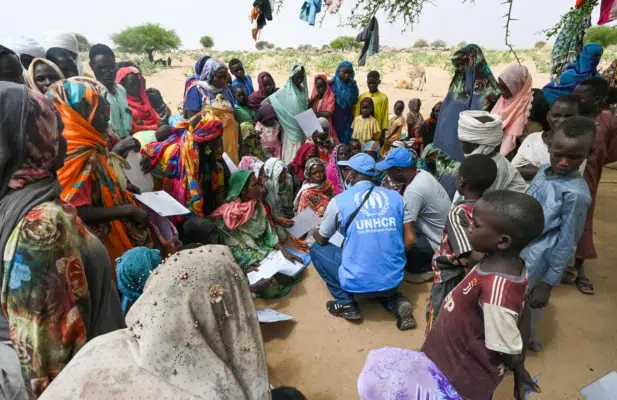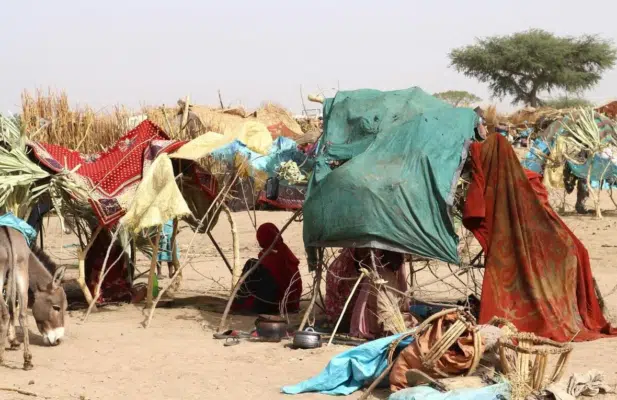
Sudanese refugees who recently arrived in the southern Egyptian city of Aswan. © UNHCR/Christine Beshay
With no time to mourn her husband and no clear plan, Arafa fled Khartoum with her two young children in a desperate bid to escape the deadly clashes and reach safety.
When fighting erupted in Sudan’s capital Khartoum, 25-year-old Arafa was at home alone with her two young children. Panicked by the sounds of shooting and warplanes flying overhead, she tried calling her husband at work but could not reach him.
“I spent the night in fear, unable to go out of my house as people were being killed everywhere. The next day, I woke up terrified to a phone call from my husband’s friends telling me that my husband had been shot and was dead,” said a grief-stricken Arafa.
With her husband gone and not knowing how else to protect her five-year-old son and three-year-old daughter amid the escalating violence, Arafa resolved to leave the capital. Carrying her children, she set out by bus for Madani, a city 135 kilometres southeast of the capital on the west bank of the Blue Nile.
“I did not think we would make it.”
There she met a local man who offered to help them leave the country. Together with five others, they were driven to Port Sudan, the country’s main eastern seaport. From there they had to walk for a whole day before finding transport northwards along the coast towards the Egyptian border.
“I was scared, tired and without hope. The road was difficult, and the continued sound of gunfire was deafening. I did not think we would make it,” Arafa said. “I spent 80 hours without food or water. I was holding my children in my arms, fearing the war, the journey to asylum and the long road ahead.”
After crossing the border, they were eventually driven to Cairo and dropped off in a square in the unfamiliar city. With nowhere else to go, Arafa and her children spent the night on the street. “In the morning, a South Sudanese woman was passing by the square. Seeing me there, she advised me to go to the office of UNHCR and register with them,” she explained.
Arafa and her children are among 42,300 people reported by the Egyptian government to have crossed into the country from Sudan since the start of the fighting, of whom 40,000 are Sudanese.
Inside Egypt, UNHCR, the UN Refugee Agency, is leading UN interagency coordination in collaboration with the Government to support people in need of international protection crossing the border. Aid is being delivered by the UN and distributed by the Egyptian Red Crescent to those who arrive, including water, hygiene and sanitary kits, wheelchairs, health assistance and food.
Like the other countries neighbouring Sudan that have been impacted by the emergency, Egypt already hosts a large refugee population. UNHCR’s operations in these countries were already acutely underfunded before this latest crisis, and increased support will be vital to respond to the humanitarian needs of those fleeing the violence.
“I lost my home, my husband and my country in the blink of an eye.”
Some Sudanese families who reached Cairo have approached UNHCR for assistance, including Arafa and her children who are now registered for assistance with the agency and living with the South Sudanese woman they met in the square. But while they managed to escape the fighting and reach safety, Arafa said their future feels far from secure.
“I can’t believe I am here in Egypt now, but I am still afraid of everything,” she said. “I need help. I am afraid of the future. I lost my home, my husband, and my country in the blink of an eye. I don’t want to lose my children too; I want them to be safe.”
Originally published by UNHCR on 02 May 2023.





